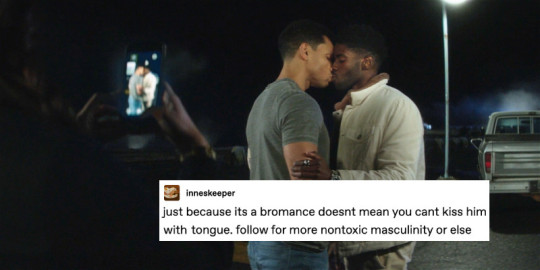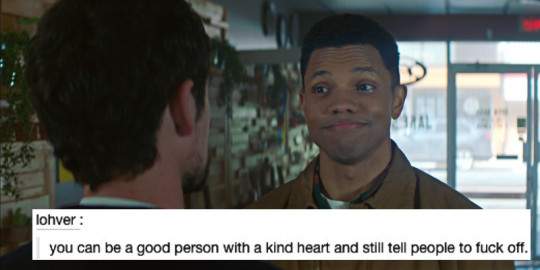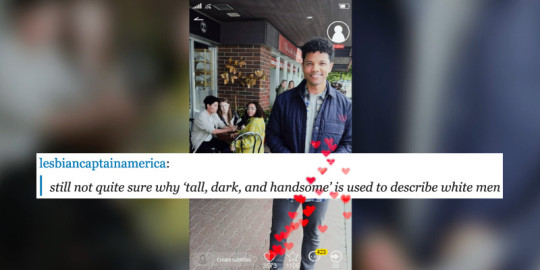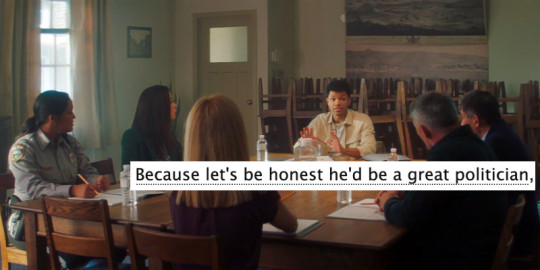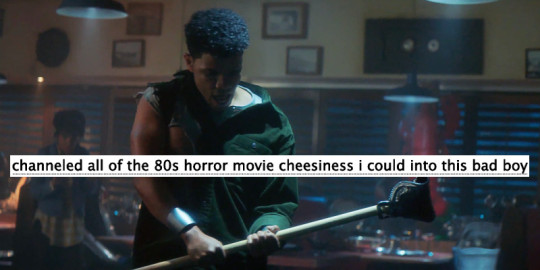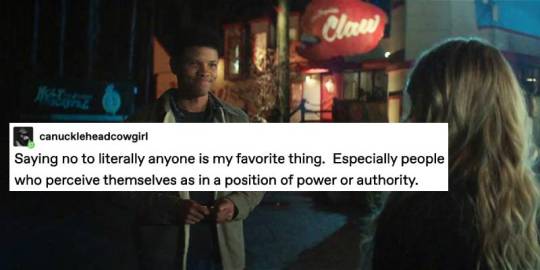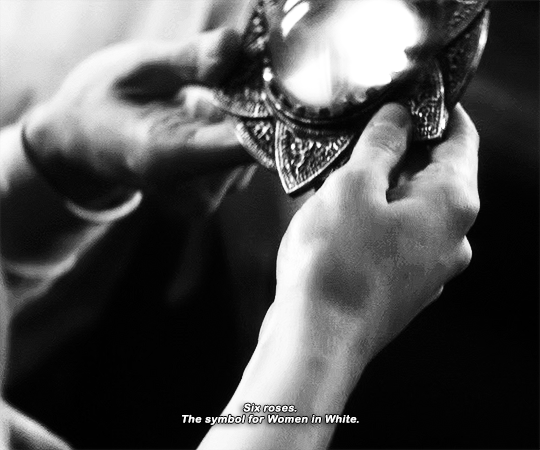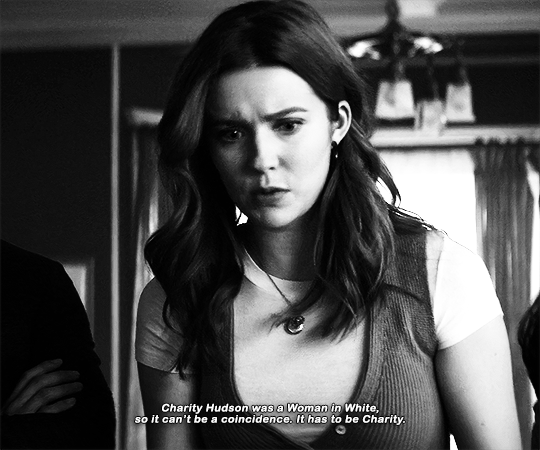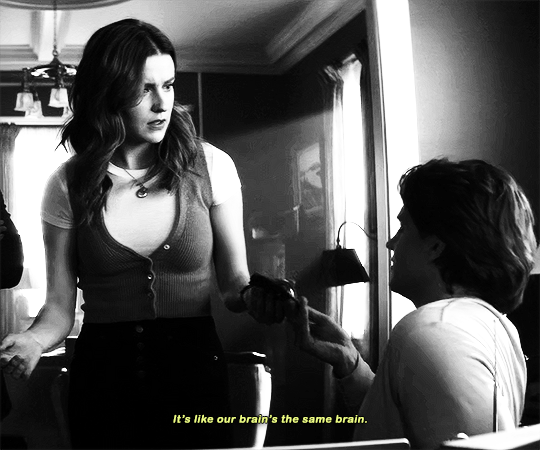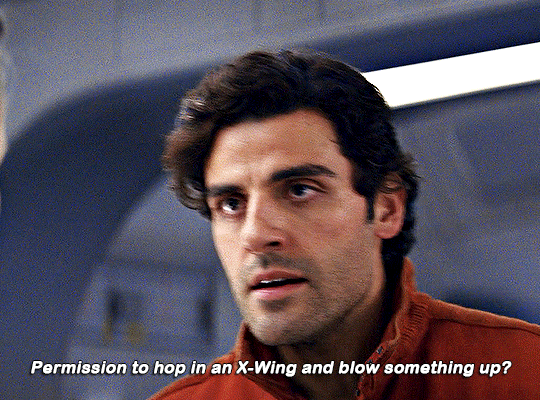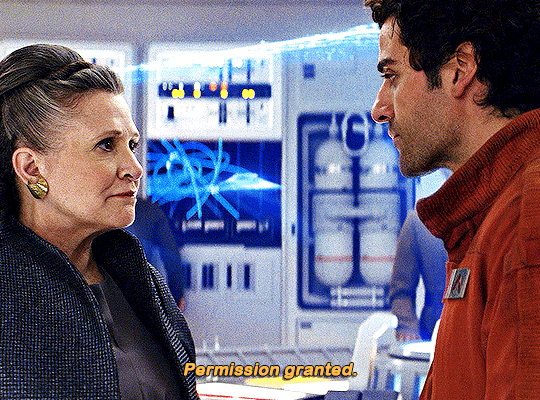I’m broken, but I’m forgiven ✝️ Fandom junkieI got the write stuff.REQUESTS CLOSEDMasterlist
Don't wanna be here? Send us removal request.
Text
The Residence: Self-Acceptance & Embracing Different Ways of Being ❤️
Contain Mild Spoilers that doesn't reveal the murderer! 🤣
One of my favourite scenes in The Residence is the birding trip that Cordelia takes her nephew on, where she tells her nephew that every birder makes sense of what they experience differently:

Just like everyone makes sense of Life differently and there's no single "universally correct" way to Be, even if others, including those you love, don't understand your Way of Being and label you "unhealthy, single-minded, obsessive, difficult, stubborn, uncompromising", just because your way is unusual or frustrating for them:






Even though the natural differences in our Ways of Being can cause friction, as well as hurt & frustrate us in turn when others label us negatively, it doesn't necessarily mean that we need to change our Ways of Being just to fit into the "norm", because our so-called "flaws" (which are really just differences in Being) can be a great help to others when applied to the right Context.
Which we saw when Cordelia used her unique gifts to find her sister Aimee's missing strawberry sock that their late brother had gifted to Aimee, so Aimee can feel better after their brother's recent passing (this was why Aimee was so upset by the missing sock, coz it felt like she was losing a piece of her brother who they'd already lost).






Just like finding the missing sock was what Cordelia could do for Aimee, accepting ourselves and each other to embrace our unique gifts is what we can all do for each other, so we all have the space to be our authentic selves while connecting with and helping each other despite our differences, and oftentimes because of our differences.
When we can do that, when we can embrace the Diversity in our Different Ways of Being, we may find that what are commonly considered "flaws", "weaknesses", or "undesirable, inconvenient traits" can turn out to be our greatest collective strengths 🥹❤️
I find this message of Self-Acceptance and Embracing Diversity in Ways of Being a very very moving message in a world that tends to label neurodivergent and non-conformist people negatively by default 🥹❤️
Not to mention, even while Cordelia's her unapologetic self throughout the case, she tempers her Nature where she needs to, such as when she drops her investigation immediately when Chief Dokes, the one person who's been in Cordelia's corner with unwavering trust & support throughout the case and her career, needs protecting from the fallout to his job.
Which shows us once again that Cordelia was never the "difficult, uncompromising, stubborn" labels that people different from her slapped on her, and she didn't let those labels stop her from being her True Self to help others 🥹❤️
Coz let's not forget Cordelia's great Heart, which is evident when she solved her first case of the missing strawberry sock, not coz she's "difficult or uncompromising", but coz she loves her sister & doesn't want Aimee to be sad 🥹
Ironically, it's probably the rest of the world that's more "uncompromising" than Cordelia when it comes to accommodating Different Ways of Being, coz unlike "normal" people who tend to want others to conform to their "normalcy" as alluded to by Cordelia's phone conversation with adult Aimee who reminded Cordelia her son's not like Cordelia, to which Cordelia replies she knows that and she isn't trying to turn her nephew into her, she just wants to make sure he's a little less like Aimee and more like himself (which tells us Aimee's parenting is probably quite prescriptive), we see Cordelia giving her nephew freedom to be himself while she tries to find the bird he wants to see, and she even tells him "you can do it how you want" when he asks what he should write in his own birding book 🥹❤️
It's precisely because Cordelia wasn't accepted by general society for her differences that she innately understands "everyone does it differently", even supposedly "normal" folks, and it's more important for us to accommodate Different Ways of Being rather than to enforce some universal false standard of "normal" on others.
Coz just like it was never about "us versus them" in AB Wynter's mind or in Cordelia's, in Life it's not about "us versus them" either.
It really is just Us.
That is why I L❤️🔥VE Cordelia Cupp and this show 🥹❤️
320 notes
·
View notes
Text
I just want to say thank you to the Bridgerton team for showing me a version of King George III other than the villain American history portrays

3 notes
·
View notes
Text
I read this as I was forcing myself to watch AYITL after comfort watching the original show. And I cried (not hard or uncomfortable, I cry about everything, but still emotion provoking). It totally changed my viewpoint and opinion on AYITL, and I thank you, OP.
I'd love to defend Gilmore Girls: A Year In The Life for a minute (I don't usually make long posts and may delete this later for that reason) because I feel like writing something inconsequential.
Other people get lots of comfort watching the original show (especially in the fall). I feel cozier watching AYITL. The characters are much older; the dizzy, flighty, still-growing-up feelings for Lorelai and Rory have faded, and it's full of moments that make it clear that certain things in their lives are definitely always going to be there. Constants. Luke, Stars Hollow, family, Kirk, Taylor, the changing of the seasons. Now - for my defense. (I'm rambling.)
Okay, many, many people don't like the revival. I understand. It's different in a lot of ways from the original show, and lots of expectations were not met. When I first saw it, it threw me too. But I didn't dislike it. In fact, the more I rewatched it, the more I thought it was almost better than the first show. The leading ladies are not flashy young stars anymore - Rory is Lorelai's age when the OG show first began, and Lorelai is gracefully and fabulously careening toward grandma times with all her wit and charm, all her most comfy habits, and it makes me want to hang out with her more than Season 1 of the show ever did. And I think the fact that ASP came back to write for these characters again and end it on her terms, at last, was an absolute win, and I love how she did it because it fixed so many things I thought were wrong in the show.
Lorelai is self-centered, terrified of commitment, and has no idea how to put others before herself and not run away during the hard times - unless something involves Rory.
Rory is self-centered, thinks she is special, and has no idea how to deal with not getting what she wants. The consequences of her actions almost never directly affect her, and when they do, said consequences are quickly stamped on and snuffed out by her mother/friends/family.
Emily is self-centered, desperate to be in control, and finds her worth in what other people think, in how things look, and that includes what Richard thinks.
In the show, Lorelai has moments where she learns to stay and learns to put other people who are not Rory before herself. Those moments don't last. She definitely has good intentions, but they're all conditional. She only has good intentions up to a point - and that point is usually when someone or something threatens her happiness and feeling of safety, or Rory's happiness and feelings of safety (understandable; that's her child).
In the show, Rory is told she is the sweetest kid in the whole world. Rory is told she'd never do anything to hurt anybody. Rory is told she's special, she's smarter than her peers, she's not like other girls. Rory 100% believes that. She also probably has a bit of a problem with living up to that image - she wants to be all of those things, and thinks she is, and can't handle it when it seems like people think she's not. (That may or may not have something to do with Christopher, who always had somewhere more important to be, or with Lorelai, who was so cool and strong and sure of Rory.)
And the show has moments, too, where Lorelai has to face the music and see that she's screwed up or is hurting someone with her behavior (Max, Chris, Luke, Jason, Emily, Richard, Sookie), but very very often, Lorelai breezes her way through that music and keeps moving, and flits to the next thing or person that will make her happy, because she does not know how to stay and stand and fix what she's broken. Because it only matters if she is happy and if Rory is happy. (The same thing goes for Rory in the show - consequences come, but Rory rarely has to properly deal with them herself. She is coddled and propped up the whole way.)
Now, to my point!
I watched AYITL and noticed something was different right away. Lorelai is with Luke (she should be), who is the opposite of her - constant, loyal, selfless, determined to stay no matter how hard things get. But they're not married. Lorelai is scared to really commit, and marriage is one of the hardest things you can commit to - ever. And Lorelai is not happy. Rory, for her part, is not perfectly settled as a reporter or a journalist or any of the things she was always told she could be. And she's not happy. And Emily, bless her, has lost her husband and her false sense of control is spinning away, and of course, she is not happy.
And A Year In The Life takes the show's clumsy half-arc of these three Gilmore women and perfectly completes it.
Lorelai's fear of commitment and habit of bolting when things get hard drives her to push every new chef out of the Dragonfly, refuse to expand the inn to better accommodate Michel's needs, shun Rory's tell-all of her past mistakes, shame Richard at his funeral and break Emily's heart, and worst of all, nearly wreck the closest thing to a proper relationship she's ever had: the one she has with Luke. She can't face that she misses her father, loved her father, and that maybe her mother is right about her relationship status. She can't face that people might read Rory's writing and see all her flaws and all her mistakes growing up in printed ink, and she can't run from that. And when Rory insists, Lorelai cuts ties. Lorelai has spent years avoiding marriage with Luke. She has spent years hurting her mother in an effort to defend herself at all costs. And she has spent years ensuring the Dragonfly Inn is exactly what she wants it to be; because changing it would be uncomfortable, and as a result, she won't commit to a new chef, she won't expand, and she's about to lose Michel the way she lost Sookie.
Rory's bubble of self-centeredness and assurance that she's special is popped with the needle of reality at last: she is not special. She's a young woman who has to actually work hard to find a job and make some money, like everyone her age. She is talented and she is smart, but she's not God's gift to journalism, and people keep saying no, and people keep asking her to prove her skills and her merit, and she doesn't know how to deal with that because everyone has always told her she can do anything she wants and she's the best. She wants a distinguished career and can't find anyone who will take her on; she tries to write for a raging batty feminist (hello Alex Kingston I love your work) and that goes sideways; she wants Logan Huntzberger but she turned down his proposal and now he's engaged and it has to be a secret; she wants somewhere to live - just not Stars Hollow because she's better than the thirty-somethings stuck back home. She wants Lorelai to approve of her book and insists her mother give her this, as if Lorelai hasn't always given her whatever she could. And when Lorelai says no, Rory does what she wants anyway and almost fractures their relationship over it.
Emily's control is completely gone - she can't control her emotions, she can't control her tongue, she can't control her maid or her maid's handy family, she can't even control a stupid painting of her late husband. She's on a downward spiral and her anchor is dead. She tries to regain a sense of worth, because surely that will bring happiness back. She tries to gain it from how many possessions she has, that doesn't work. She tries to gain it from Jack, who is not well-suited to her but he makes a matching accessory to the life other people will see. That doesn’t work. She tries to gain it from therapy with Lorelai, control her daughter at last, that doesn't work. She tries to control Richard's headstone, that doesn't work. She even tries to find solace with her beloved D.A.R, and she finds that emptiest of all.
A Year In The Life has these women finally face their flaws head-on and grow. The way characters should.
Rory: Rory is confronted with the fact that she is not special and has to move home like everyone else her age and get a job she does not want, because that's life, and that's what everyone else has to do in the real world. And when she's at her lowest, pouting, she gets advice from someone who has faced his own flaws long ago and has grown and who knows her at her best, and encourages her to get up and work hard (Jess Mariano, ladies and gentlemen). And she does. Rory hits bottom and takes Jess's advice and works at understanding her mother, who is not perfect, and even goes to interview her father, who is also not perfect. She fights with Lorelai over the book and insists on her own way, and when Lorelai refuses, Rory can only blame herself. She has a rabble-rousing night with her LaDB boys and winds up sleeping with Logan in one more bubble of fantasy, one more umbrella-jump of escapism, like the old days, because Logan is her weakness. And when she wakes up the next morning, Rory turns and walks away from Logan and the affair and her insistence on having what she wants regardless of who she hurts (hello, Dean Forrester and her affinity for taking spoken-for men) for the final time. And the consequences of her desires? She’s pregnant. (Come on, we all know the baby is Logan’s; Rory’s life rhymes with Lorelai’s.) She goes to Christopher to interview him for the book and is subtly asking her father why he wasn’t in her life, because she needs to know what to do with her baby and her lover. She didn’t go to Lorelai to figure that out. She went to her dad, because the truth is, Rory didn’t have her father, and part of dealing with the consequences of her actions is to work out how to take care of this baby and whether or not that means involving the father. She’s owning up. She goes to Lorelai and offers to give up this book; she doesn’t make excuses or whine, she wrote the book anyway because she believes in it, but when she’s gotten three chapters in, she respectfully goes to her mother and asks her to read it and then, for the sake of Lorelai, not herself, Rory promises to quit and throw the book out if Lorelai does not approve. Because Lorelai is more important to her than herself. Rory has worked hard and made mistakes and gotten pregnant and she has stared the world in the eyes and seen she’s not special. And she has to deal with that. And she does, finally, deal with it. And she’s happy.
Emily: Emily is confronted with the fact that nothing is inside her control—except what she does. Worth does not come from what she owns or who she’s with or what she’s wearing, and it didn’t come from her marriage, either. That wasn’t why she married Richard anyway. She is miserable and alone, and part of that is her fault. She married Richard because she loved him, and she keeps coming back to Lorelai because she loves her, and she opens up her house to Rory when Rory needs a place to write because she loves her. Emily looks around at what she has and recognizes what has worth and what doesn’t, maybe for the first time, with clear vision. She recognizes that she can’t control everything. At first, that fact keeps her down. She forgets what day it is, the curtains are closed, and she doesn’t get up in the morning. No Richard, no Lorelai, no reason to move. And then Lorelai calls her, and tells her about who Richard was and what Richard did and how it mattered, and that inspires Emily. She can get up. She buys a place on Cape Cod, totally opposite of the sort of life everyone admires and expects to have worth, and she does what she’s really always been best at—she loves. She takes care. She took care of Richard, she took care of Lorelai and Rory when they needed it, and she takes care of Berta and her wonderful family, instead of having a maid take care of her needs. She packs up and moves out, she sends Jack away, she reveals the D.A.R. for what it is and quits them forever, and she takes a job at a whaling museum because she just likes it. It’s nothing fancy, and neither is her oceanic house or the music she plays in it or the clothing she wears, because none of that is worth anything anyway. Her family is. Her friends are. She gets the painting of Richard done right and brings it with her, and she gives up attempting control of everything and only takes control of how she behaves. She gives Lorelai what Lorelai needs for the Dragonfly, and her only stipulation is that she gets to spend more time with her daughter and Luke. She loves, she takes care of others, she helps. And she’s happy. And now, the best for last. The star.
Lorelai: Lorelai sits in that stupid Stars Hollow Musical and hears a song that perfectly describes her problem—it’s never or now. Make a commitment. Do something hard. Make your life about something other than your momentary present happiness and comfort, the way you do with just Rory, sometimes, but make it a permanent change. Make change permanent! Don’t run away! …And then she runs away. She’s been miserable, she’s hit bottom, like her mother before her and her daughter after her. She’s losing friends, she’s losing Luke, she’s losing Emily, she’s losing Rory over the manuscript, and it’s all her fault. Lorelai tries to breeze past it. She does Wild. She does what she’s never done before, she does something hard and uncomfortable, but she does it for herself, and therefore it doesn’t quite work. She tries to hike, Dipper Pines won’t let her hike, she meets other women her age who think this hike is gonna fix things, it doesn’t, and she gives up and goes to get coffee because that’s her go-to. (Coffee is speedy, bad for you, and only a temporary rush—kind of everything Lorelai clings to, actually.) But the coffee shop is closed, and when Lorelai is denied that allegorical Band Aid, she goes around back and sees a great view and finally finds clarity. She didn’t need the hike—she needed to think. She needed a moment of silence and introspection to gain the insane courage to finally stop moving, stick around, and face her fears. To put her eyes on herself and then take her eyes off herself and onto other people—namely the people she loves. Lorelai calls Emily and cries, because it’s hard to do this, it hurts, but with one story, she proves she loved her father, and she knows her father loved her, and the fact that she’s calling shows that she knows Emily loves her too, and she loves Emily, and has loved them both all along. It gives Emily the strength she needs to get out of bed. That was hard, but Lorelai did it. And now she’s going to do more hard things—she’s going to commit. It’s never or now, and Lorelai chooses now. She goes home and the first thing she does is propose to Luke and become Lorelai Danes overnight. Hard. Scary. Just right. She patches things up with her daughter, and chooses Rory over herself—for the hundredth time, yes, but when it’s at its hardest for her to do. “I’ll read it when it’s done.” Lorelai expands the Dragonfly. She goes to Emily for help, which is also super hard, but this time it’s not for Rory – it’s for her, and it’s for Michel, and it’s for the Dragonfly. And she accepts Emily’s affectionate terms. Lorelai chooses Rory, Luke, Emily, and Michel over herself, and commits, and she doesn’t run away. And she’s happy.
And all of it is earned. Finally earned.
I could talk more about the incredible writing, about ASP at her best, about the perfect themes and scenery and the very intentional end to Paris, Lane, Kirk, Taylor, Dean, Jess, Logan, Chris, and the general cast’s stories, but I’ve already rambled for too long.
Suffice it to say: A Year in the Life is my Gilmore Girls. It’s best version of the story. I think it was expertly done. Not perfect, but an ending that was earned.
150 notes
·
View notes
Text
❤️🫠





ULTIMATE SHIPS CHALLENGE - Non-Endgame Ships [3/5] ↳ You make me better. (insp)
336 notes
·
View notes
Text








Pretty Little Liars | Summer School One Gif Set Per Episode Episode Eight: Final Exam
#pretty little liars original sin#pretty little liars summer school#original sin#summer school#tabby haworthe
68 notes
·
View notes
Text
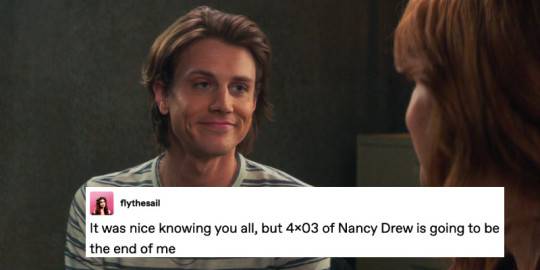

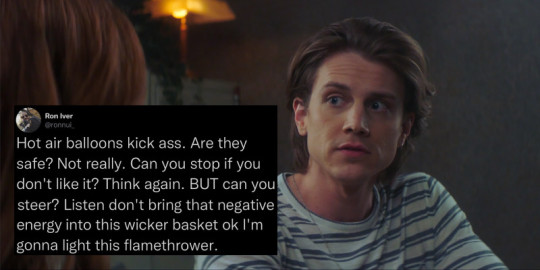
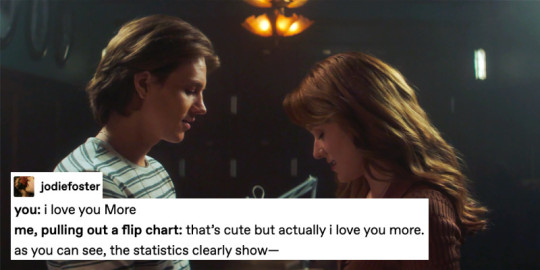


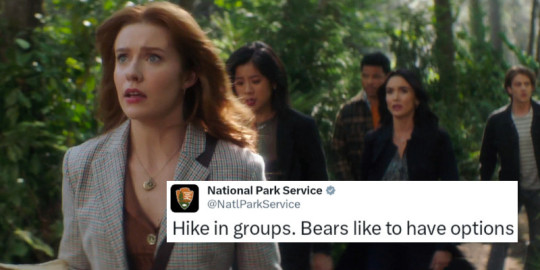

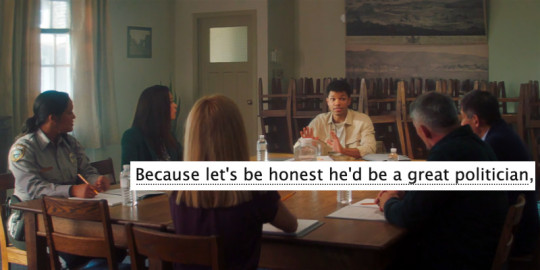
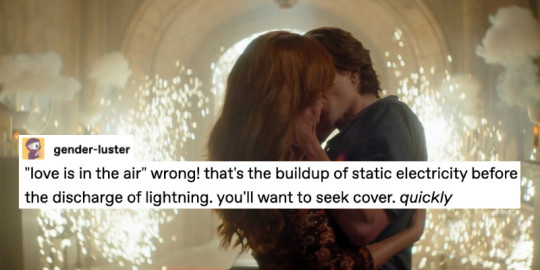

Nancy Drew + text posts (25/?)
4.03 || The Danger of the Hopful Sigil (1/2)
236 notes
·
View notes
Text
Same! I attribute all my problem solving skills to Nancy Drew games
My totally normal coping mechanism: when a situation is stressful or hard, I pretend I am in a Nancy Drew game 😌
92 notes
·
View notes
Text
🟢 You are still a writer even when you haven't written in a while.
🟢 You are still a writer even when you feel like you aren't writing enough.
🟢 You are still a writer when you feel like your work isn't good.
🟢 You are still a writer when other people don't like your work.
🟢 You are still a writer when you aren't published.
🟢 You are still a writer when you only have works in progress.
🟢 You are still a writer if all you write is fanfiction.
30K notes
·
View notes
Text
Cobie Smulders who plays Robin confirmed herself that Barney was the real love of Robin’s life and her soulmate
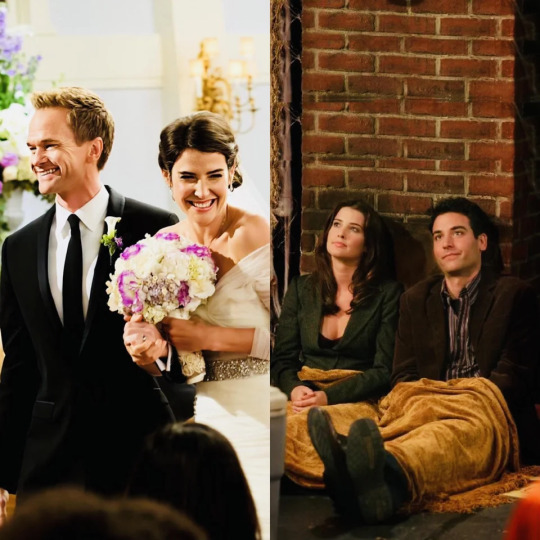
Yes. Both Barney and Ted were never the most perfect partners for Robin. They both had major flaws. So did Robin. She was never the most perfect person either. BUT, the difference is, despite all the flaws of Barney and Ted, Ted never really accepted Robin for who she was and what she wanted out of her own life. When we first meet Robin in the pilot episode. She makes it clear that she is super career oriented and her job will always come first over her love life. There was even an entire episode when she was in a relationship with Don, that all the other group members made mention that Robin always prioritises her work over her love life. So Ted is well aware of this. But still pursues Robin. He knows full well that she doesn’t want marriage and kids. Or anything else that Ted wants. But Ted still wants to continue a relationship with her. So them breaking up shouldn’t of been so shocking.
Ted thought that by being in a relationship with Robin that somehow Robin will change her mind. So Ted was never really in love with Robin. But more of the idea of her. His love for what HE wanted in his life trumped whatever “love” her had for Robin. He was unwilling to compromise because what HE wanted in life was more important to him than continuing a relationship with Robin. We can all talk about all the creepy things Barney did to get Robin. But let’s not forget that Ted also done creepy things to get Robin and I’d argue Ted was worse because at least Barney is honest with who he is. Ted is the “good guy” so that makes his actions a lot worse than Barney’s. So for everyone saying they broke up because they wanted different things, that’s the whole point. They had different outlooks on life. And both Ted and Robin knew this. Ted was willing to break up with a woman he supposedly “loves” all because she didn’t want what he wanted in life. The ending was more sad than anything. It was basically two super old people who didn’t really have anyone else in their lives in a romantic way.
Barney, as flawed as he was. The difference between him and Ted is that Barney ACTUALLY accepted Robin for who she was. He never once tried to change her. When he finds out that she can’t have kids, that wasn’t a deal breaker for him at all. He still wanted to pursue Robin. Like he said to his Mother who asked him about possible grandchildren, Barney said she can’t have kids and that’s okay because he’s marrying Robin for HER. Not some idea of having kids. So Robin being so career oriented and not wanting kids was never this deal breaker for Barney. Which makes their divorce that much more illogical. Barney being tied of Robin constantly travelling and not putting time in their marriage.
Because he loved her for her. Barney was completely okay with not having kid because Robin was more than enough. Unlike Ted who was obsessed with Robin for no real reason. When Robin kept shooting down Ted constantly. There was an episode in season 8, where Robin tried to sell Barney’s house. Then later changed her mind because she said that if she tried to change everything about Barney he was never going to be the man she fell in love with. And that she accepted all the creepy sociopathic things about him. So basically Robin accepts Barney for who he truly is and still wanted to marry him and form a marriage with him. So BOTH Barney and Robin both accept each other for who they are.
All in all, Ted was never really in love with Robin. But more of the idea of her. Barney on the other hand was in love with Robin for HER. Ted was unwilling to change his outlook on what he wanted in life when he knew it didn’t match Robins. But Barney despite all his flaws accepted Robin for who she was and never tried to change her.
So who was the love of Robin’s life and her true love and soulmate? It was Barney.
180 notes
·
View notes
Text
Dear Christian kids:
“Honor thy father and thy mother” does not mean “let your parents belittle you constantly and disproportionately”
“Honor thy father and thy mother” does not mean “let your parents physically absue you”
“Honor thy father and thy mother” does not mean “let your parents steal from you”
“Honor thy father and thy mother” does not mean “let your parents lie about you”
“Honor thy father and thy mother” does not mean “let your parents endanger you physically or emotionally”
“Honor thy father and thy mother” does not mean “your parents can sexually assault you”
“Honor thy father and thy mother” does not mean “your parents can force you to wear clothes that are uncomfortable or sleep in a bed that causes you physical pain or demand that you speak with a specific regional accent”
“Honor thy father and thy mother” does not mean “you are your parent’s slave”
“Honor thy father and thy mother” does not mean “you owe your parents something for giving birth to you”
“Honor thy father and thy mother” does not mean “lie to protect your parents”
“Honor thy father and thy mother” does mean you should basically respect your parents and obey them within reason. Your parents do not get to change the definition of respect to include whatever they think you should do. The definition of respect does not include mindless obedience. And when the point comes that your parents tell you to do something morally wrong, at that point you are no longer required to obey them. Morally wrong includes things that are harmful to you.
The Bible commands that children honor their parents, but it also tells parents not to provoke their children (Ephesians 6:4). You are permitted to dissolve the parent-child relationship if your parents are not putting effort into it in a loving and Biblical manner. It is tragic, and in a perfect world would not be necessary, but we don’t live in a perfect world and sometimes it is necessary.
If you go to someone for help and their first response is “honor thy father and thy mother”, that person is not someone you can trust. “Honor thy father and thy mother” does not occur to rational people when a child says their parents are hurting them.
If you are being abused, it is okay to get out, even if the people in your church and family tell you that you owe your parents this. God loves you, and this is not what he wants for you.
791 notes
·
View notes
Text
it's not that I need a quiet day or a day off exactly; it's that I need a pocket of time that exists entirely outside of linear time as we know it that would allow me to get things done without time passing in the real world, and frankly, I don't think that's too much to ask.
116K notes
·
View notes
Text
MC: (after Sebastian teaches her a new spell) Is there anything you can’t do?
Sebastian: Gather up my wits and ask you out.
MC: What?
Sebastian: What?
327 notes
·
View notes












